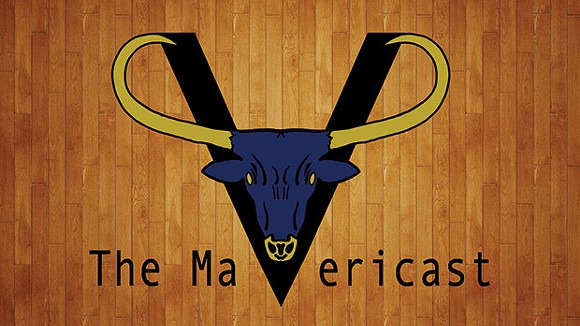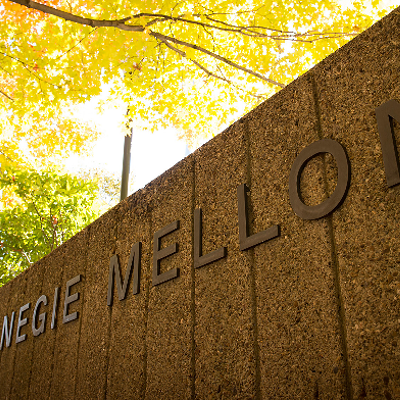It can be hard being a conservative on a college campus. According to a 2014 Pew Research Center study, 41 percent of millennials identify as liberal compared to just 15 percent who identify as conservative. Considering that college campuses are currently dominated by millennials, it’s not always easy for conservatives to find each other and discuss their political ideals.
But in July, a group of conservative-minded University of Pittsburgh students created the right-leaning news website The Pitt Maverick.
Michael Yorgey, an economics major at Pitt and the journal’s publisher, calls the Maverick a conservative “safe space,” but he recognizes the slight irony, considering that conservatives often say liberal safe spaces take political correctness too far and limit free speech. Still, Yorgey says the website was necessary to give Pitt students “a bastion for conservative thought.”
Derek Wagner, a writer for the Maverick who is studying statistics at Pitt, agrees with Yorgey.
“The reason we have such a conservative slant at the Pitt Maverick is because that viewpoint was not [represented] anywhere on campus,” says Wagner. “It’s a voice for students who aren’t normally heard on campus, to produce news and share opinions.”
Since last summer, the Maverick has grown to about a dozen staffers and averaged about 200 clicks a day, though those figures dropped over winter break. The majority of articles are opinion pieces and cultural reviews, and the site regularly produces a podcast, The Mavericast.
While some Maverick stories have garnered national attention, the student-run publication hasn’t fallen in line with the more extreme stances of some alt-right publications, like those that question feminism’s legitimacy. However, some critics do question the site’s own legitimacy and journalistic ethics, given the staff’s minimal training in hard-news reporting.
The Maverick’s biggest story was an October 2016 article detailing how people harassed Donald Trump supporters on campus. A video shows a man ripping down a Trump banner and a table with Trump literature being flipped over. The story was picked up by many large conservative daily news outlets, including Fox News, The Daily Caller and The Blaze.
“We went from just starting and not expecting any traction, to being cited in national news outlets,” says Wagner.
Staffers write mostly about conservative values, like gun-rights and federalism, and in fact can be pretty moderate. Yorgey says he believes in climate change, and Wagner says he voted for two Democratic candidates in November. Wagner adds that the Maverick has been aggressively trying to recruit writers with libertarian and even Democratic viewpoints. “If we are going to talk about intellectual diversity, we can’t have a completely one-stance paper,” he says. “We can’t just ‘destroy’ an argument and practically vilify every single liberal that holds that belief. We have to be able to have discussions and arguments.”
But this doesn’t mean Maverick staffers aren’t supporting conservatives. Both Wagner and Yorgey say President Trump is doing a “pretty good” job, with Wagner adding he was “anxiously optimistic” about Trump. (Wagner also said that the Maverick hasn’t endorsed any political candidate).
Regardless of the slant, Andy Conte, director of the Center for Media Innovation at Point Park University, says it’s good that a group of students has started a news site.
“There is a great tradition of student papers on campus,” says Conte. “It’s great for them to find an outlet for their voice. … They are writing what they are motivated by. Maybe they feel like they weren’t being heard.”
But Elizabeth Lepro, editor-in-chief of The Pitt News, the student-run daily, takes some issue with how the Maverick covers hard news. She says its reporting is far from thorough.
“They publish these stories that are only presented from one side, and some people might take that as the full story,” says Lepro.
She points to a story the Maverick ran claiming that a Pitt professor sent an email offering students extra credit to attend an anti-Trump rally. Lepro, who wrote a follow-up story in The Pitt News, says that the Maverick never reached out to Pitt officials for a comment on the email. Later, Pitt officials issued a statement, saying that the email was a student email forwarded by an administrative assistant, not a professor; noting that the email doesn’t mention Trump; and adding that extra credit can’t be offered for such an event.
Yorgey acknowledges that the Maverick doesn’t have an adviser and is not officially affiliated with the university, and that most of its writers don’t have any journalism experience. But Pitt Maverick editor-in-chief Marlo Safi, who previously worked as an opinion editor for The Pitt News, says she and her managing editor continue to receive training from the Collegiate Network, a nonprofit that supports conservative-leaning college papers. The Maverick has yet to accept sponsorship from the nonprofit.
Safi, in an email to Pittsburgh City Paper, says that for “nearly every news piece,” the Maverick has tried to reach out for the other side of a story, but that many times sources refuse to comment. (None of the Maverick’s news stories, however, appears to mention any source refusing to comment.) Safi adds that the Maverick has had guests from opposing political views on its podcasts, and that it is in the process of expanding news coverage.
Still, Lepro worries about the Maverick’s hard-news practices and its influence. For instance, Fox News, Breitbart and Penn Live have all picked up its stories without consulting other sources that might give more balanced coverage.
“I think they have an absolute right to publish,” says Lepro. “But, if you are going to call it news and journalism, don’t stray too far from the ethics of journalism.”



















